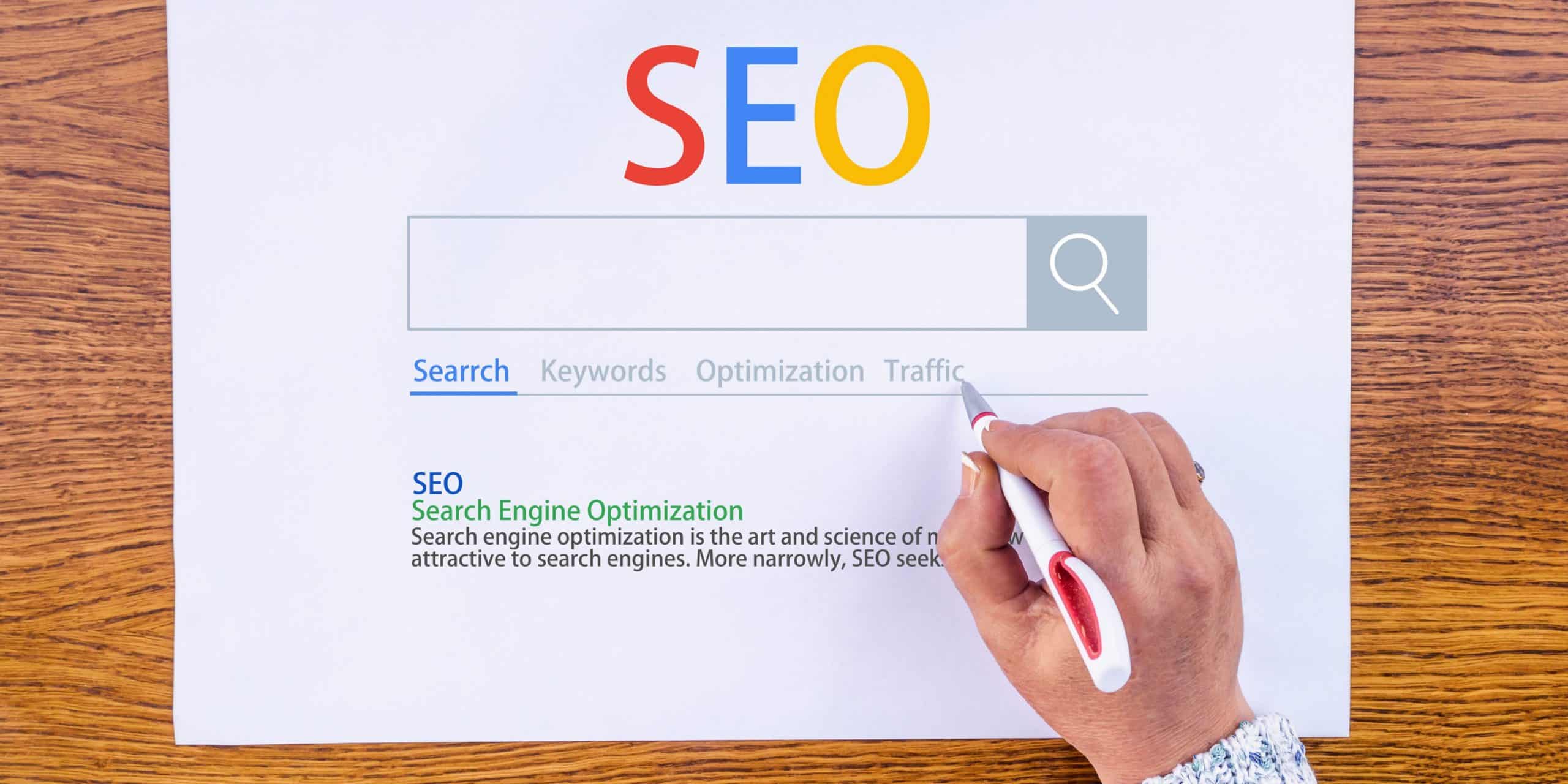What exactly is SEO? Read about the fundamentals you’ll need to know to get started, as well as the three most important SEO success tips.
SEO, HTTPS, PBN, and KPI are all terms that you should be familiar with. These are just a few of the terms used by SEO professionals on a daily basis.
But if you’re a small business owner or new to the industry, you probably don’t know what those acronyms mean.
It can also be intimidating to ask. So, what exactly is SEO? What does it all mean? Don’t be concerned. I’ll assist you in becoming fluent in the language of SEO. This post will go over everything I’ve learned about SEO. Everything that I could fit into 2,000 words or less.
What Exactly Is SEO?
SEO is an abbreviation for search engine optimization.
At its core, SEO is the process of getting your website to rank as high in Google as possible.
The higher your site ranks, the more visible your company is, and the more traffic and sales it is likely to generate.
However, if you are new to SEO, you may feel a little befuddled.
There are numerous websites, books, and guides available, and you may discover that the majority of these resources provide contradictory information.
One of the reasons SEO irritates so many people is that it is constantly changing.
Why? Because when marketers sink their teeth into a new “strategy,” they have a tendency to run it into the ground.
In essence, we are the reason we can’t have nice things. There’s also the fact that Google’s algorithm is constantly being updated. SEO is an ongoing battle to get more eyes on your website and persuade Google that it is worth sending searchers to.
Is SEO Extinct?
Yes. It’s completely defunct. Our work is done. You should just give up right now. I’m mostly joking.
I’d argue that SEO is dying all the time. SEO best practices die and are reborn as the strategies we’ve come to know and love are replaced by newer, more effective ones. So, while SEO isn’t dead, it is constantly evolving. If you want to be successful in SEO, you must be willing to roll with the punches.
What Is the Most Crucial SEO Factor?
There is no single golden SEO factor that outranks all others. One of the most common responses in SEO is, “Well, it depends…”
This may be infuriating, but it is the truth.
- Do links have any value? Yes.
- Is it necessary to have links in order to rank? Possibly, but not always.
- Does the length of the content matter? Yes, but a bad long post will not outrank a good short post.
How long does it take for SEO to work?
It all depends. (Sorry!)
Only Google understands how its algorithm works.
They do issue updates, and there are a few lists of the most important ranking factors available. The truth is that SEO takes as long as it takes – depending on your strategy, this could be weeks or even months. If someone else does something just a tad bit better, you may be pushed to the bottom of the SERPs.
What Is the Distinction Between On-Page and Off-Page SEO?
On-page SEO refers to changes you make to your own website that have an impact on SEO.
Adding an XML sitemap, for example, can help your SEO. Off-page SEO refers to SEO strategies that take place outside of your website, such as linking to pillar content.
Link Building Is Difficult; Can’t I Just Buy Links?
You could do it. You could also put your hand in a blender – no one will stop you. However, it is an ineffective SEO strategy.
Rather than purchasing links, I recommend beginning with our guide to link building and acquisition.
Today’s and Tomorrow’s SEO Factors
You’re ready to get your hands dirty now that we’ve covered the fundamentals.
We’ll go over a few of the most important SEO factors below.
Remember that SEO trends change all the time, and what works now may not work in a few months.
Every time, relevant, optimized content triumphs
There are numerous technical SEO factors to consider, such as site structure, anchor text, URL structure, and so on.
These particulars are important, but the foundation of SEO is high-quality optimized content. The rest of SEO will be much easier if you get that right.
If you want to rank on Google’s first page, you must have relevant, well-optimized content that attracts links.
What exactly do we mean when we say “high-quality content”?
Here are a few things to consider when creating content:
- Keywords are still important, but context is more important. Google crawlers now examine the context and look for secondary keywords that are related to the searcher’s intent.
- Titles, meta descriptions, alt attributes, H1 tags, and URLs should all be clear and keyword-rich. These factors inform Google that your site is relevant and aid in its ranking.
- Length is important, but relevance is more important. According to Google, “the amount of content required for the page to be satisfying depends on the topic and purpose of the page.”
In short, make sure that all of your content is written for humans first and then optimized for Google.
Metadata Is Important
The title and lines of text that appear on the search results page are referred to as metadata.
Metadata informs the user of what they can expect to find if they click on a link.
It’s easy to optimize your metadata:
- Include keywords and variations in the title and description that are relevant but not repetitive.
- Keep it brief, but not too brief. Google trims meta descriptions to around 160 characters, so aim for less.
- Be as clear and concise as possible so that users know what to expect.
Consider metadata to be advertisements for your content. What makes users want to click? What can you say to them? Use the meta to encourage clicks, which will result in traffic, which will result in even more traffic.
Links are important, however…
Links have always been an important part of SEO since Google’s inception.
Links, in essence, act as ‘votes,’ informing Google that other sites believe your content is useful and relevant.
The more high-quality, relevant links you obtain, the higher your site’s chances of ranking for related key terms.
In short, links are still important in SEO. However, quality is more important than quantity.
Target links from high-authority, high-traffic websites if you invest in link building as part of your SEO efforts.
Ways to Actually Succeed in SEO
SEO advice
The technical stuff I mentioned above, and the core principles of SEO. The technical aspects will change over time, but these SEO tips will stand the test of time. If it appears shady, it will most likely burn you. You’ve probably heard the terms black hat, white hat, and gray hat SEO. Black hat SEO refers to practices that are in direct violation of Google’s terms of service.
Then there’s the gray hat, which, while not technically incorrect, treads a fine (gray) line.
White hat SEO is completely legal and above board. However, some have convincingly argued that the white hat is no longer a thing.
Many SEO professionals toe the line between black hat and gray hat. And many of them are burned.
If you want to be successful in SEO, you must do things correctly.
If something feels off, such as buying or selling links, it will most likely burn you and destroy your site.
Believe me. The long-term risk is not worth it.
Check out Real Experts
There are many SEO “experts.”
Some of them guarantee that they will get you to the first page of Google. Others don’t do SEO but write a lot about it.
Follow the advice of true SEO experts and take the advice of others with a grain of salt. What works for a technology e-commerce site may not work for a restaurant supply store. Pay attention to what comes directly from Google.
Test, Test and Test again
SEO is all about determining what works best for your site in your industry based on your specific environment.
The only way to find out is to test – and then test again and again.
Remember that if Google’s latest algorithm update changes things or if your competitor does something new, all of your hard work could be for naught.
Testing is an indispensable component of any successful SEO strategy.
Conclusion
SEO is constantly changing. Every SEO professional wishes to discover the magic formula that propels their sites to the top of SERPs and keeps them there indefinitely.
Unfortunately, SEO does not work in this manner.
There are rules and best practices, but the core of SEO is determining what works for your site or client and then changing it when it no longer works.
My final piece of advice is:
- Keep a close eye on your rivals.
- Adhere to best practices.
- Test




